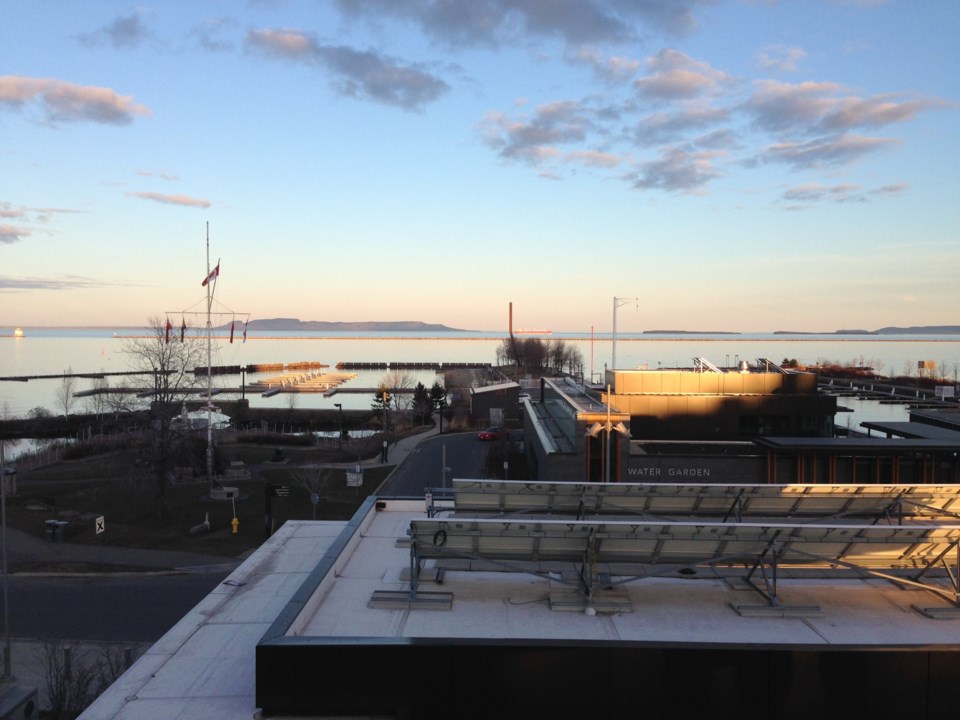I'm a Thunder Bay fan and always will be. It is one of the most beautiful settings for a city in Canada; from the calm shores of Lake Superior to the rolling mountains surrounding the city. It's what's in-between that needs the conversation.
I was always the one in the middle, clouded with defending my city to the "haters" (aka a large percentage of locals). Constantly highlighting the good and not acknowledging the bad. Attending news conferences on grand openings and funding announcements, while closing my eyes as I passed the rotting buildings and vacant urban land.
The number one issue with Thunder Bay is not the lack of civic pride, racism, substance abuse, etc. The number one issue facing Thunder Bay is the understanding that its population is not going to grow. There's been a carrot dangling in front of decision-makers and citizens, which changes year after year of what's going to create or attract the population; from health innovation to geology research to immigration to education. Some of these have occurred, some have not. The truth is the data does not support any growth, but actual decline.
What does this mean? Is all lost for Thunder Bay? Absolutely not.
What do you do if you lose your job and you're on 50 per cent of your original income? You spend 50 percent less. The average cost per taxpayer for city services for someone who lives downtown in a city $1,416. The average cost per taxpayer for city services for someone who lives rurally is $3,462. Buy urbanizing Thunder Bay, it can effectively cut city service costs by 50 percent for those residents.
What does urbanizing include? Defining the services that your citizens receive, where those services operate and limiting sprawl of those services and development.
Thunder Bay needs to be a lot smaller. The first step in becoming a small city is understanding you're a small city. Say it out loud everyone, "Thunder Bay is a small city, and it's OK." It hurts, I know.
The population density is too low causing the cost of service to skyrocket.
- Neebing Ward. A tax revenue vs the cost of service study needs to occur to understand the cost of this ward. If the cost per taxpayer for services exceeds what taxpayers are willing to pay, Neebing Ward needs to become a township or merge with Oliver-Paipoonge.
- Chippewa Park. You don't need a study to understand that this park operates at a loss. Building refurbishments and maintenance costs alone does not justify the quality-of-life impact on local residents. Here is a great opportunity to approach Fort William First Nation and discuss handing the land back to the original owners.
- Fort William First Nation. Any community that uses services from another community, pays for those services. This is such a touchy topic due to the fear of sounding prejudiced, but all Thunder Bay services used, need to be paid for; ambulance, fire, transit, etc. I challenge you to find another community that leaves their city limits to provide free service to neighbouring communities.
- Council. There's a document in Thunder Bay called the Official Plan. It's a document updated frequently based on data and research to provide a land use plan for city development. This document is constantly being vetoed by council to approve development projects outside areas where they should be. Council needs to wrap their head around the fact that development doesn't always mean increased tax revenue. As discussed earlier, the cost of service for these rural (outside the planned development zones) residents are dramatically higher.
- Administration. A review of services offered by the Corporation of the City of Thunder Bay needs to occur. It hurts me to say this as a vocal socialist, but there are certain services better left to private industry that Thunder Bay is currently offering. This review is not only for the services offered but for where they are offered as well. The intensification of services will assist in the intensification of citizen dwellings/commercial activity.
Not to compare Thunder Bay to Detroit, but they are learning a real lesson right now about sprawl and cost of service. Not having the funds to continue service to the suburbs that sprawled during the time of 'wild-west-planning' and cheap cars and fuel, the city now offers incentives for citizens to move to the urban area. Once intensification occurs in Thunder Bay, city budgets can be then focused on quality services to serve its citizens and affordably address the plethora of other issues facing the community. There's real opportunity to disrupt the constant; the uncomfortable conversation just needs to start.
Jonathan Hendel

